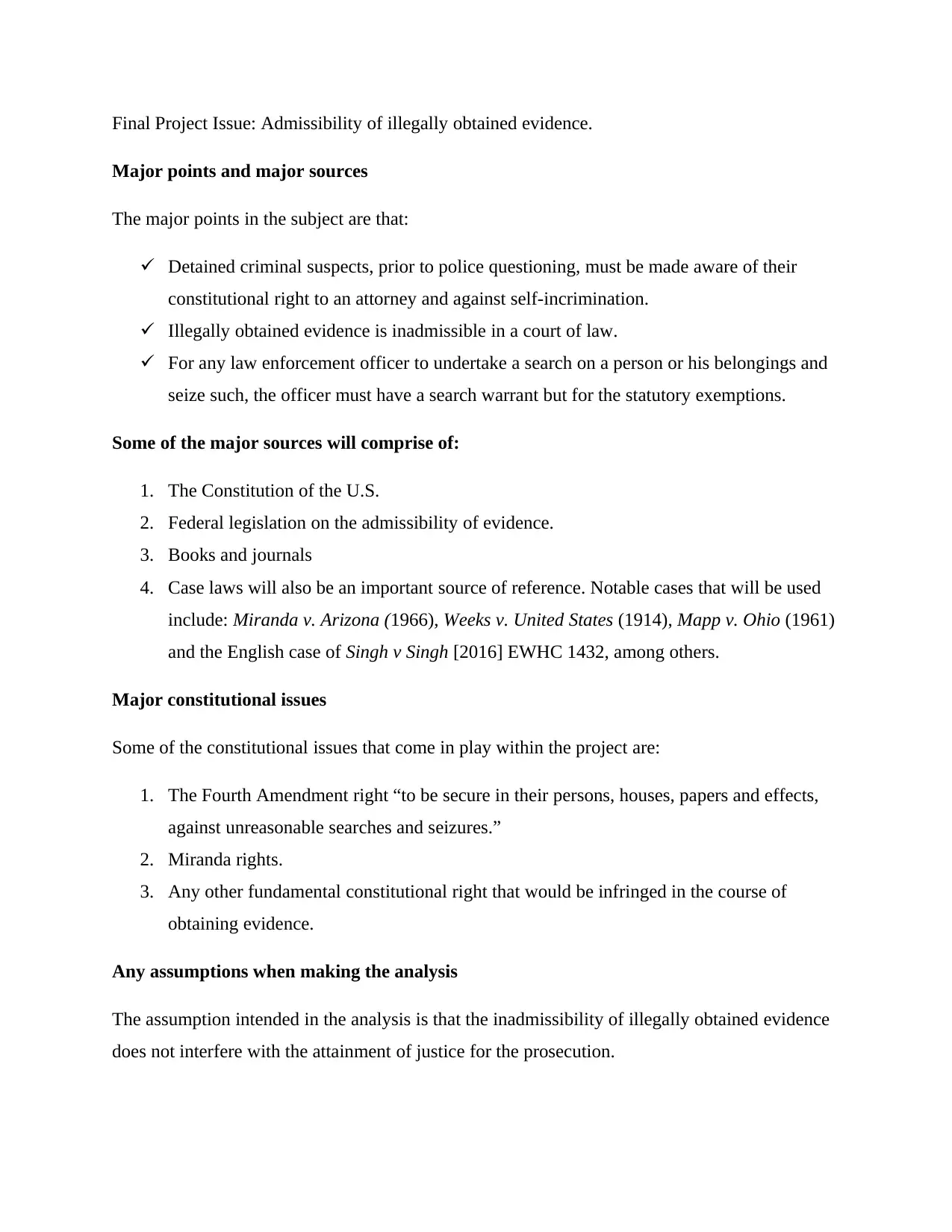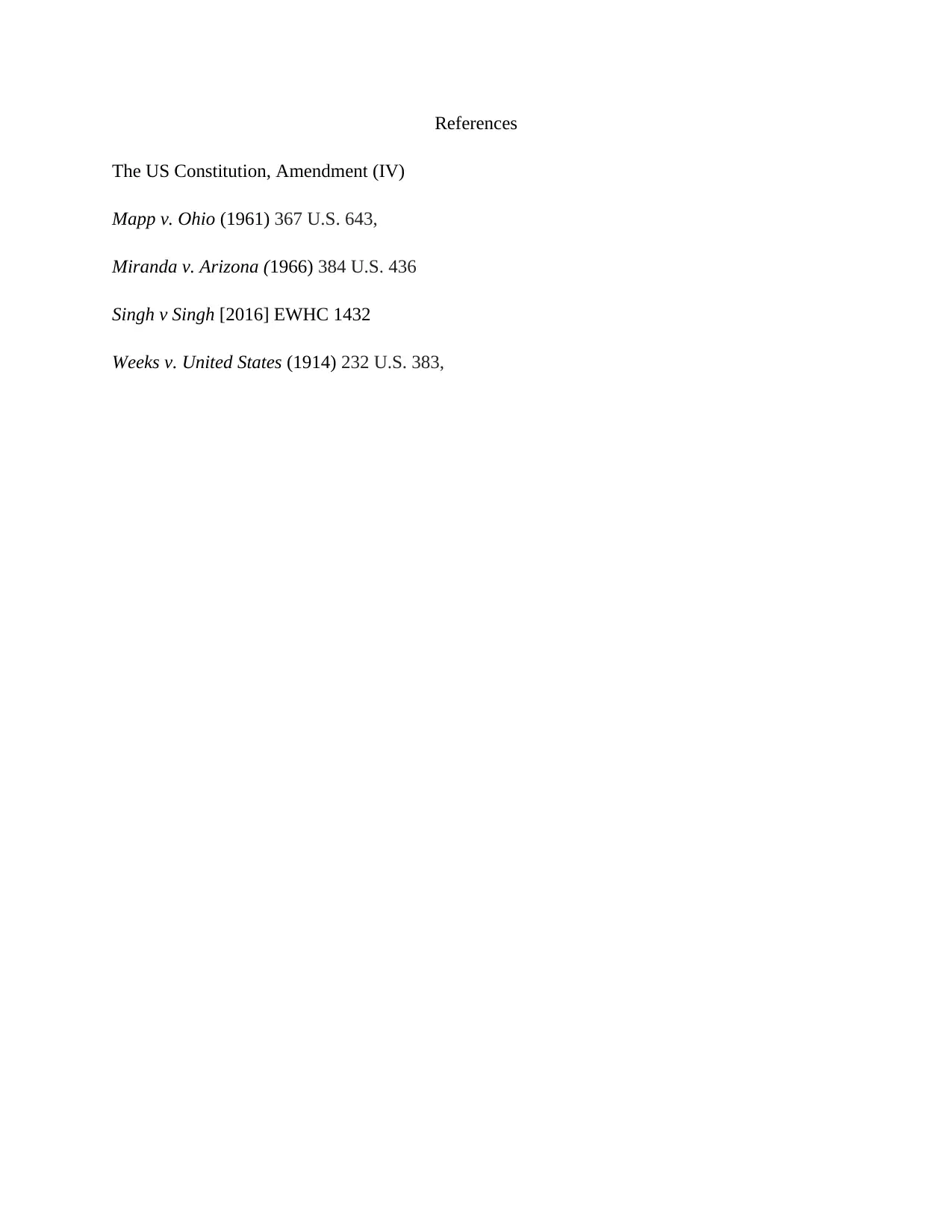The Admissibility of Illegally Obtained Evidence: A Detailed Study
VerifiedAdded on 2022/11/29
|2
|312
|88
Homework Assignment
AI Summary
This assignment delves into the critical legal issue of the admissibility of illegally obtained evidence. It examines the constitutional rights of individuals, particularly focusing on the Fourth Amendment's protection against unreasonable searches and seizures, and the Miranda rights. The assignment explores the implications of illegally obtained evidence in the context of law enforcement, including the requirement for search warrants and the exceptions thereto. It references key cases such as Miranda v. Arizona, Weeks v. United States, Mapp v. Ohio, and Singh v Singh [2016] EWHC 1432, to illustrate the legal principles. The assignment also explores the tension between the admissibility of evidence and the pursuit of justice, highlighting the importance of upholding constitutional rights. The analysis assumes that the inadmissibility of illegally obtained evidence does not hinder the pursuit of justice. The assignment provides a comprehensive understanding of the legal framework surrounding the admissibility of evidence, offering valuable insights into constitutional law and its practical application.
1 out of 2



![[object Object]](/_next/static/media/star-bottom.7253800d.svg)